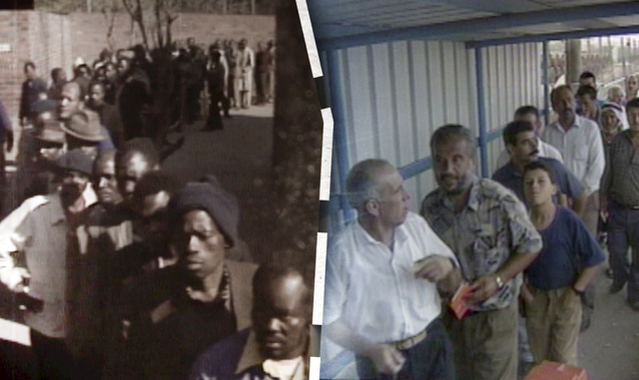Roadmap to Apartheid draws parallels between South African segregation and Israeli occupation
This year’s Israeli Apartheid Week featured the screening of a film about the living conditions of Israeli Palestinians. Roadmap to Apartheid was screened by La Société générale des étudiantes et étudiants du Collège de Maisonneuve (SOGÉÉCOM) and Tadamon!, a Montreal-based association that supports the Middle East and diaspora communities.
According to War On Want, an organization that fights against poverty and for global human rights, Israel controls both the Occupied Palestinian Territory and Israel itself. The legislation in place favours the Jewish population by allowing them better living conditions in opposition to the Palestinians, whose fundamental rights, such as education, liberty of movement and housing are restricted. Israel commits acts that are prohibited by the UN Apartheid Convention, including “preventing Palestinians from returning to their homes and lands” and “murder, torture, unlawful imprisonment and other severe deprivation of physical liberty, especially of Palestinians living in Gaza,” as mentioned in the Israeli Apartheid Factsheet section on the War On Want website.
Organized by over nine organizations, including two from Concordia and McGill, Israeli Apartheid Week consists of a series of events aimed to educate people on the subject. This year marks the 15th edition of the global event. The week’s ultimate objective is to bring awareness to the environment in Israel and to reinforce the BDS (boycott, divest and sanctions) movement. The BDS movement aims to put an end to the international support of the oppression of Palestinians by targeting Israel’s economy, encouraging government sanctions and ceasing support of Israeli institutions (sports, academic and cultural).
Jérôme Charaoui, a member of Tadamon!, was the host of the event. Tadamon! advocates for Palestinians seeking refuge in Canada. The association is also involved in organizing various protests in Montreal.
During the South African Apartheid, media pressure on the government helped put an end to the country’s discriminatory politics. The reason the issue with Israel is unique, according to Charaoui, is “the actual situation is not internationally recognized as Apartheid.”
During the 90-minute screening, Roadmap to Apartheid showed aspects of the Palestinian-Jewish conflict that are similar to the South African Apartheid. Part of the documentary consisted of a juxtaposition of images from both conflicts to illustrate their similarities.
The documentary discussed the differences in access to resources for Jewish and Palestinian citizens. Jewish people have an abundance of water, whereas Palestinians would go without it for several days, particularly in the summer. It has reached a point where they have resorted to collecting rainwater.
Alice Guindon, a 22-year-old Guijek student, attended the event because she is interested in issues surrounding oppression.
Guindon recommends the documentary because “we have to open our eyes on the issue that is happening there.”
According to Guindon, the situation is “very violent, thus, we must mobilize ourselves all around the world.”
For more information about Israeli Apartheid Week, visit apartheidweek.org, and for more on Tadamon!, visit www.tadamon.ca.
Photo courtesy of Tadamon!




